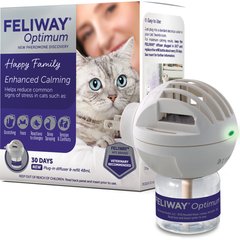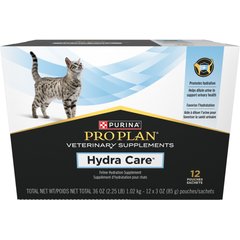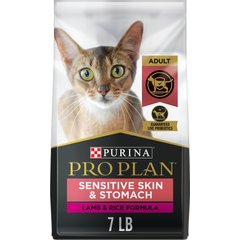How to Choose an Experienced Cat Breeder
Are you in search of a purebred cat? Picking the right breeder is the first and most important step. Remember, a healthy cat is a beautiful cat.
If your heart is set on a certain type of purebred cat, you will probably have to deal with breeders (though adoption may also be an option). Picking out a breeder -- and thus a cat -- may make you feel like Paris Hilton shopping for a pair of Jimmy Choo shoes. Although, it’s really not a fair comparison. A kitten is a companion you'll have for many years to come. And shoes, well, they go out of fashion by the season.
Seriously though, choosing an ethical, reputable breeder is important. Your first task should be making a list of breeders who deal with the breed you're looking for. Do a little research to see what their reputations are. Cat societies, friends with cats and vets are good sources of information. Then it's as easy as crossing off breeders with bad reviews off your list.
Vet Recommended Health Support
- Feliway Optimum Enhanced Calming 30 Day Diffuser for Cats$29.99Chewy Price
- Purina Pro Plan Veterinary Diets FortiFlora Powder Probiotic Digestive Supplement for Cats, 30 count$30.99Chewy Price
- Purina Pro Plan Veterinary Diets Hydra Care Liver Flavored Liquid Supplement for Cats, 3-oz pouch, case of 12$14.99Chewy Price
- Purina Pro Plan Adult Sensitive Skin & Stomach Lamb & Rice Formula Dry Cat Food, 7-lb bag$28.08Chewy Price
Does the breeder have a website or references online? Many people who buy from breeders will write about them on a blog or pet websites. If there are reviews, do they come with pictures and stories of the cats as adults? Sites that aren’t geared towards breeders (but geared towards offering a pet owner an unbiased and broad spectrum of information about animals) are another wealth of knowledge. People will often post about both good and bad experiences through such sites.
If a breeder is registered, you are more likely to get a healthy, well-conditioned cat with pure bloodlines. Assembly line cats might sound like some cool Japanese invention, but these kitty mills can produce pets with plenty of medical problems.
While most breeders love cats passionately, those merely in it for the money will often breed and keep their cats in squalid and inhumane conditions. So a visit to each breeder is highly recommended. You may also want to make sure the cats and kittens are kept in clean, comfy and safe surrounds. Otherwise, you may end up paying more than you bargained for in unforeseen vet bills.
Often, you can get a quick impression by taking a look at the breeder's home or place of business, or by chatting with the breeder. But asking well thought out and pertinent questions are also essential. If by some chance the breeder seems cagey or does not want to give you a tour of the place, you should probably steer clear. Someone with nothing to hide will gladly talk or show you around. And a breeder who interviews you to make sure you can provide a good home is another good sign of a qualified breeder.
Something worth remembering, however, is purebreds may have congenital defects. Research your chosen breed online (petMD's Breedopedia has a variety of cat breeds to look at) and become familiar with it before you arrive to interview the breeder. Ask about how they avoid or keep defects to a minimum. A good, honest breeder will tell you about defects and faults in a breed.
A kitten should not be taken away from its mother until it is at least 10 weeks of age. (Some breeders like to keep the kittens until they are 14 to 16 weeks old.) Any younger and you know the breeder is probably not someone you want to deal with.
Also, check to see if the kittens and cats have been tested for infectious diseases, as well as defects. A reputable breeder will have records to prove this. Of course cats can become ill, no matter how well they’re looked after. But it’s a good idea to find out how the breeder handles sick cats, such as separating them from the healthy ones. A good breeder will allow you to take the kitten to an independent vet for a check up before you buy, too.
Asking the breeder about the food they use is another useful tip, as it can tell you a lot. A good, high-quality diet means healthier cats.
So, purebred shopping may not be like shopping in the exclusive strips of Los Angeles, Milan or Paris, but it can be an interesting ride. As you are picking your breeder, go into the adventure with information that will help you make the best choice possible. Remember, this is going to be your companion for years to come, so have fun and choose wisely.
Image: Konstantinos Papakonstantinou / via Flickr




